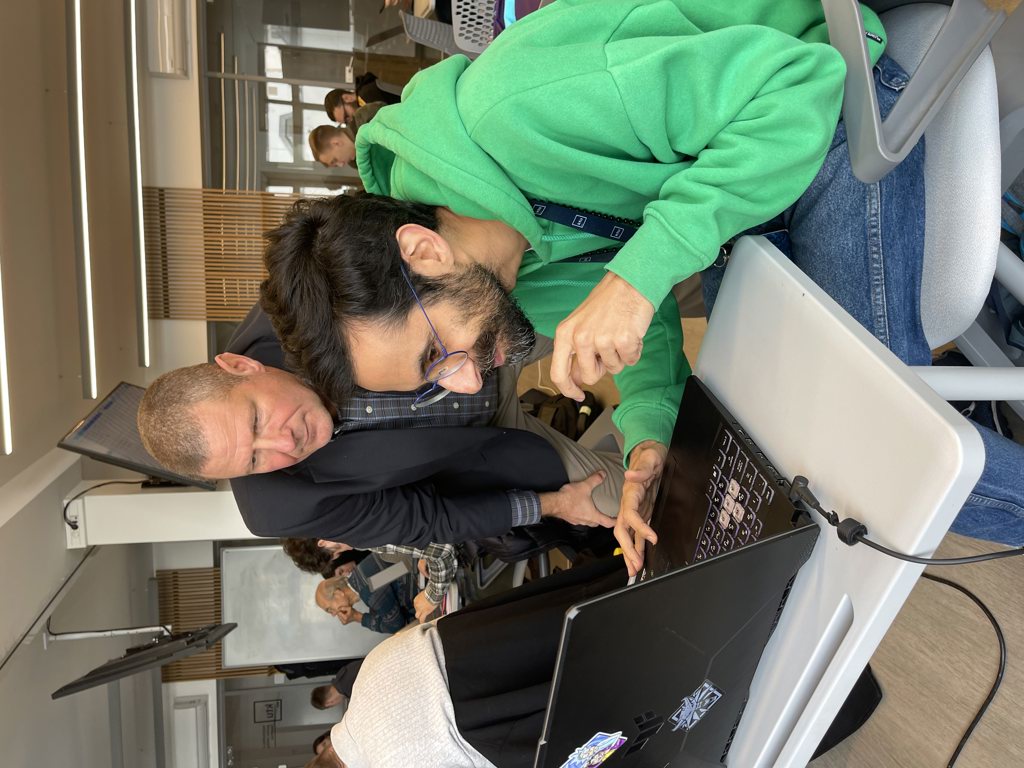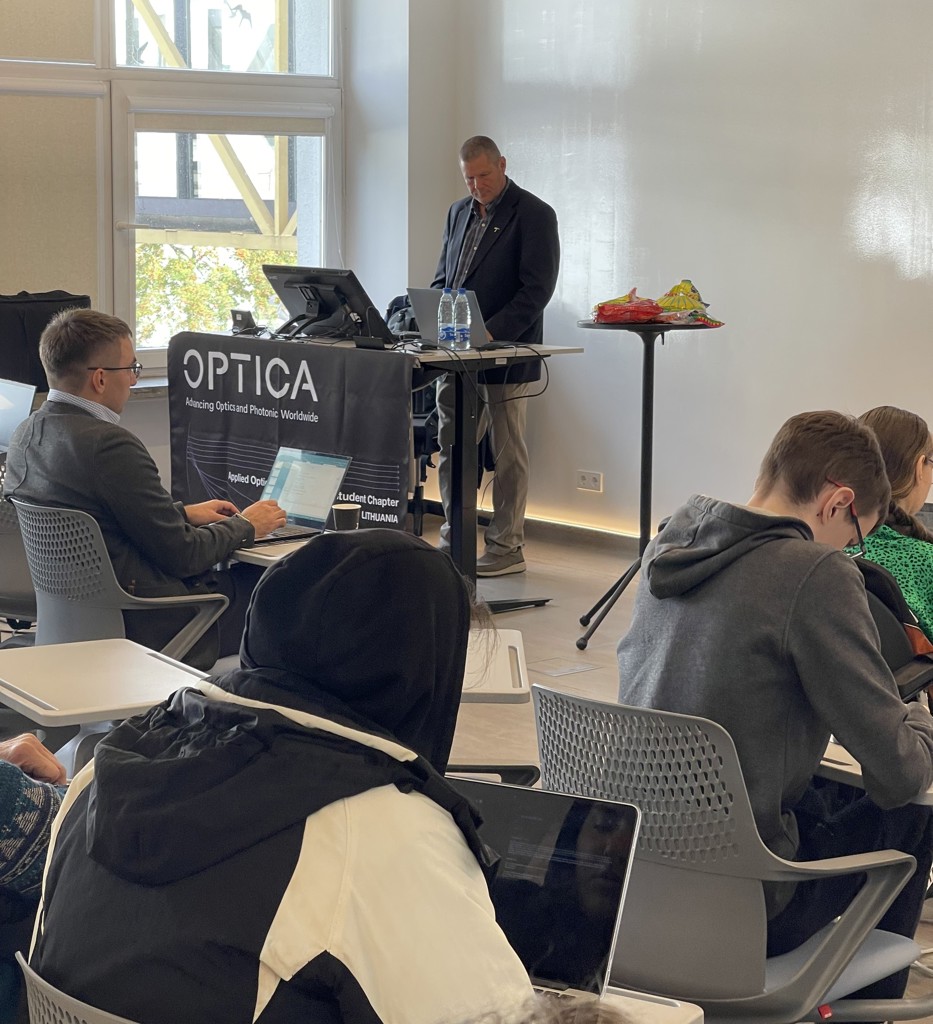Traveling Lecturer Series: Voyage to Lithuania
In October 2023, Raymond C. Rumpf,a professor of electrical and computer engineering at the University of Texas at El Paso (UTEP), traveled to Kaunas, Lithuania as part of Optica’s Traveling Lecturer program. Optica’s Student Chapter at the Kaunas University of Technology (KTU) invited Rumpf to visit and share his expertise with students and faculty.
Over a week, Rumpf held talks and workshops and built valuable connections with optics students at KTU he hopes will result in new collaborations. This is his second trip as a Traveling Lecturer. In 2018, Rumpf traveled to Thailand to give a series of talks on photonics and a career coaching seminar.

Describe your visit to Lithuania
I gave two talks and five workshops over one week. The first talk was a visual overview of computational photonics and electromagnetics (CEM) so attendees could understand which method would best simulate different types of devices more intuitively. The second talk was given at the end of the week, which was a career coaching seminar that covered topics like personal branding, professional networking, resumes, and miscellaneous career advice to help the students maximize their success.
During the week, I gave five workshops on various implementations of the finite-difference frequency-domain (FDFD) method and one on the transfer matrix method (TMM). I believe FDFD is the best FIRST method to learn in CEM because it is one of the simplest to learn and implement, it involves most of the concepts in CEM, and is incredibly versatile. I recently wrote a book to help beginners get started in CEM. It teaches the art of CEM using FDFD and covers important topics not handled anywhere else like how to test a new code, best practices for accurate simulations, and more.
What did you find interesting about the chapter?
Kaunas University of Technology has strong expertise and capabilities in fabricating and characterizing photonic devices and materials. They were interested in developing some computational photonics/electromagnetics capabilities to complement their fabrication and characterization capabilities. This will broaden their expertise and put them in a stronger position to do research and win external funding in new areas.
In addition to Lithuania's fascinating and inspiring history, I found the motivation and dedication of the students to be incredible. The workshops I gave were intense and lasted for five very full days. There was a huge crowd of students and faculty that attended everything. Even more, they asked a lot of questions, demonstrating to me their genuine interest.
What projects or outreach caught your attention?
The student chapter Applied Optics and Photonics KTU organizes seminars for faculty and students. They contribute to the outreach activities for students during local and national events at KTU, such as Spaceship Earth and Researchers Night. The student chapter also contributes to the organization of the annual conference-school Advanced Materials and Technologies, which was organized for the 25th time this summer. At this event, they offer and vote on a special prize for the best student poster in optics and laser technologies. I had a chance to participate in the very same conference in 2022.
Was there anything from the trip you would take back to your students, be it technical, professional, or some other information?
The biggest thing I brought back were opportunities to collaborate internationally on exciting research and, hopefully, opportunities to do student exchanges. We are working to set up a student exchange between UTEP and KTU so that our students can work with new people as well as experience other cultures. These opportunities to gain experience outside the classroom will benefit all students.

Having been a TL at least once, was there anything about the trip you felt helped you grow as a professional or in Optica?
It is always helpful and insightful to learn what others are doing in optics, how they do their work, and their philosophy on the subjects and how to execute them. Getting stuck in my isolated mindset is easy, but serving as a TL is helping me broaden my thinking. On a smaller note, but certainly useful to me, is how to give a better workshop. This was the first time I gave a workshop of this style, which taught theory as well as writing codes for students to run their own simulations for their own devices. Based on the students’ feedback, I hope to improve how I run the workshops in the future. The students inspired me with new ideas to broaden the range of topics I am prepared to teach.
Any advice for Optica members considering being a TL?
I would like to see TLs be very student-focused. Instead of using the opportunity to visit a new place and disseminate your research, be a TL with service as the primary goal. Help the students and faculty by giving them new knowledge, skills, and opportunities. If you like working with motivated people, you will love being a TL for Optica!
Optica’s Traveling Lecturer program funds student chapters to host a guest speaker of their choice annually. As a traveling lecturer, you can travel around the world on behalf of Optica to provide technical and professional development content to students.
